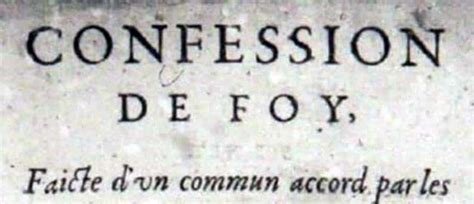An Exposition of Article Thirty-Three of the Belgic Confession — The Sacraments
We are a weak and sinful people. But God, in his grace, gives us tangible signs and seals of his promise to save us from the guilt of our sins and to free us from sin’s bondage. These tangible signs and seals are the water of baptism and the bread and wine of the Lord’s Supper. This brings us to a discussion of the sacraments, the means God uses to nourish and sustain our faith.
We move into a new section of our confession, those three articles dealing with the sacraments (Articles Thirty-Three through Thirty-Five). We begin by noting the obvious–at the time in which our confession was written in 1561, the sacraments were a very divisive issue, separating the Reformed churches from Rome, from the Anabaptists, and from the Lutherans–divisions which remain to this very day. Not only did the new Reformed churches need to summarize what the Bible teaches about the sacraments of baptism and the Lord’s Supper (hence the production of our confession), but the author of our confession must also refute both the Anabaptist and Roman Catholic views on the subject, as well as differentiate the Reformed view from that of the Lutherans.
As we work our way through these three articles, it is surely proper and fitting to keep in mind that the author of our confession (Guido de Bres) was put to death by Roman Catholic authorities for serving communion to congregations of Reformed exiles. We should not forget that our confession was written in martyr’s blood.
To read the rest of An Exposition of Article Thirty-Three, "to Nourish and Sustain"
